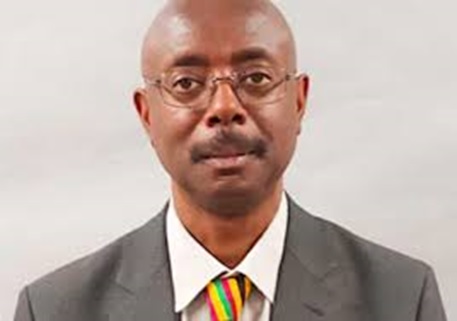
In the black continent there emerge new scholars advocating truth and began to quest the then western regime to restitute properties that could not be counted in every means of metrics. One of such renowned scholar dare the truth in open field and revealed the truth that Africa has been looted not only in terms substances but also psychological make ups and intellectual properties.
At the recent African Union (AU) Summit, Minister for Africa, Robin Walker, delivered a compelling presentation on the restitution of African property held in Europe. His address highlighted the historical injustices faced by African nations and the pressing need for a dialogue about reparations and property restitution.
Walker began by framing the issue within the broader context of colonialism and its lasting impacts on African nations. He emphasized that many African countries are still grappling with the consequences of colonial exploitation, which included the confiscation of land, resources, and cultural artifacts. These historical injustices have created a significant economic and cultural gap that continues to affect the continent’s development.
A significant aspect of Walker’s presentation was the recognition of the historical injustices perpetrated against African nations. He noted that acknowledging these wrongs is the first step toward meaningful restitution. The UK government, he stated, is committed to engaging in discussions that address these grievances.
Walker stressed the importance of dialogue between African nations and European countries to facilitate a mutual understanding of the issues at hand. He encouraged African leaders to articulate their needs and expectations clearly, fostering a collaborative atmosphere for negotiations.
The presentation also touched upon the existing legal frameworks that could support restitution claims. Walker highlighted various international laws and conventions that govern property rights and reparations, suggesting that these frameworks could serve as a basis for discussions on restitution.
A significant focus of Walker’s address was on the return of cultural heritage and artifacts taken during the colonial era. He urged European nations to consider the moral imperative of returning these items, which hold immense cultural significance for African communities.
Despite the positive dialogue initiated by Walker, several challenges remain. The complexities of legal restitution processes, differing national interests, and the potential for political backlash in European countries pose significant hurdles. Walker acknowledged these challenges but maintained that they are not insurmountable with a cooperative approach.
Robin Walker’s presentation at the AU Summit marked an important step in the ongoing conversation about the restitution of African property in Europe. By recognizing historical injustices, emphasizing dialogue, and addressing legal frameworks, Walker’s address lays the groundwork for future negotiations. The path towards restitution is fraught with challenges, but with commitment and collaboration, progress can be made in righting historical wrongs and fostering a more equitable relationship between Africa and Europe.
As discussions continue, it is crucial for all stakeholders to engage sincerely, ensuring that the voices of African nations are heard and respected in this essential dialogue.
According to recent News of local media scholars claimed that the centuries-old African artifacts housed in abroad and that are worth billions of dollars should be returned to the owners, Global Black Centre (GBC) Vice President and the prominent historian Robin Walker said.
These invaluable pieces of African history, primarily acquired during colonial times, have seen exponential appreciation over the years, representing both cultural significance and immense financial worth, he stated.
Artifacts are assets, Walker noted, adding that assets increase in value over time. “If you possess artifacts created 500 years ago, their worth has been appreciating for centuries. That’s why they’re now valued in the millions. If you have multiple artifacts from a specific civilization, you could be sitting on billions.”
This economic reality explains the significant resistance faced by repatriation efforts, he explained.
“European institutions maintain substantial wealth in the form of African heritage, highlighting their vested interest in retaining these treasures. The escalating financial worth of these historical artifacts, many dating back 500 years, stresses the economic motivations behind European reluctance to return them.”
According to the vice president, the Global Black Centre is actively engaged in supporting existing reparations movements and developing strategies for documenting and retrieving African artifacts.
“Our role is to collaborate with ongoing reparations initiatives and bolster those efforts. We aim to support existing movements while advocating for the return of original artifacts.”
In the meantime, Walker revealed that the Centre is exploring the creation of replicas to help make African heritage more accessible to the public.
African leaders are convening in Addis Ababa, where heritage reparation and restitution are expected to take center stage.
The vice president believes the summit will serve as a vital platform to tackle these issues directly. The discussions are not solely about reclaiming historical objects; they are about rectifying historical injustices and restoring cultural wealth to its rightful owners.
International Financial Crime Compliance Consultant and African Studies scholar, Leanard Phillip, stresses the need for a growing unified voice from Africa and its diaspora.
“It’s time for us to retrieve these items and show the world that we are their rightful owners. We can manage them as well as anyone else on the planet.”
He expressed disappointment over the prolonged time-line of repatriation efforts and underscored the importance of a cohesive African approach.
“Uniting as Africans under a shared voice is essential for retrieving these items. Our collective identity and advocacy will strengthen our arguments for why these artifacts belong in Africa.”
This week’s AU Summit is poised to be a pivotal moment for advancing conversations and actions on reparations and restitution.
With the amplified economic value of African heritage serving as a stark reminder of the wealth extracted during colonialism, the summit aims to amplify the unified African voice demanding justice, reconciliation, and the return of Africa’s invaluable cultural patrimony from European hands.
Phillip called on African leaders to unite in the fight for the return of cultural artifacts, emphasizing the importance of a collective voice, urging leaders to recognize that reclaiming these treasures is not just about cultural identity but also about restoring dignity and correcting historical wrongs.
“We must present a united stance to showcase our commitment to managing and preserving our heritage. Together, we can advocate effectively for the return of these invaluable pieces of our history, “he said.
He believes that solidarity among African nations is crucial to amplify their message and achieve tangible results in the ongoing struggle for repatriation.
Throughout the colonial era, numerous African artifacts were taken from their homelands and transported to Europe, often under dubious circumstances. These looted items, which include cultural artifacts, historical objects, and artworks, represent not just tangible heritage but also the rich history and identity of African communities.
The looting of African artifacts began as European powers colonized the continent, often taking items as trophies of conquest. Museums and private collectors in Europe amassed vast collections that stripped African nations of their cultural heritage. Many of these artifacts were acquired through force, coercion, or deceit, leaving a legacy of loss and disconnection for the affected communities.
Today, thousands of these looted artifacts are housed in European museums and institutions. While some are displayed as part of educational exhibits, their presence raises ethical questions about ownership and restitution. Many African leaders and scholars are calling for the return of these items, emphasizing their cultural significance and the injustice of their removal.
The movement for the restitution of looted artifacts has gained momentum in recent years. African nations are increasingly demanding the return of their cultural heritage, advocating for dialogue and collaboration with European institutions. This call is not just about reclaiming physical objects; it is also about restoring dignity, identity, and historical narrative to communities that continue to feel the impact of colonialism.
The issue of looted African artifacts in Europe remains a pressing and complex topic. As discussions around restitution evolve, it is crucial for European institutions to engage in meaningful dialogue with African nations, recognizing the importance of cultural heritage in healing historical wounds. The return of looted artifacts could symbolize a step towards reconciliation and mutual respect between Africa and Europe.
BY LAKACHEW ATINAFU
THE ETHIOPIAN HERALD WEDNESDAY 19 FEBRUARY 2025




